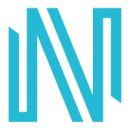The banking industry is realizing the power of blockchain. Unburdened by centralized authorities (like banks), blockchain makes it easier for currencies to be traded, loans secured and payments processed, all of which make it a worthy alternative to current technologies in the industry.
The well-worn blockchain-versus-traditional-banking trope usually pits a mysterious, understudied technology against the proven behemoth that is our current banking system. In reality, blockchain can solve some of the banking industry’s most pressing problems. Originally used as the secure decentralized payment ledger for Bitcoin, it has a track record of making processes more efficient and secure — especially in finances.
Blockchain Banking
According to a study by Deloitte, rising costs, increased cyber attacks and global payment processing cost the finance industry billions of dollars annually. Distributed ledger technology, like blockchain, can enhance traditional banking methods, including upgrades in international payments, securities trading, loan offerings, credit monitoring and fundraising. The same study emphasized the need for banks to embrace blockchain’s immutable smart contracts, real-time finance tracking and dispute settlement technology in order to differentiate themselves from the rest of the banking world.
Below are examples of how companies are using blockchain to improve banking.
Top Blockchain Banking Examples
Blockchain Banking Examples
- Ripple
- Chainalysis
- Paxos
- BlockFi
- Republic
- Nium
Location: New York, New York
JPMorgan Chase is a global financial institution that’s been developing blockchain-based solutions to bolster the financial services industry and innovate the exchange of money and other digital assets. For example, its blockchain group Onyx is involved in a pilot program to enable real-time transactions among a group of six banks in India.
Location: San Francisco, California
Cash App was founded to solve the problem of how to safely and anonymously send and receive money online. In addition to its other features, the platform’s Lightning feature uses Bitcoin blockchain along with the Lighting Network layer 2 payment protocol to move funds from person to person. Cash App was the first publicly traded company to integrate the Lightning Network.
Location: San Francisco, California
Ripple’s real-time blockchain helps banks and financial institutions instantly send money. The company’s payment platform, RippleNet, lets banks from across the world access a standardized network of institutions for speedier and transparent transactions. With a presence in over 50 countries, Ripple has kept its platform and low-cost transactions accessible for a global audience.
Location: New York, New York
Chainalysis ensures customers complete secure and compliant crypto transactions through its data platform. The company conducts in-depth analyses on various transactions, tracking funds to their sources and keeping each trader’s identity transparent. This way, customers can avoid suspicious funds and meet the legal standards of banks, law enforcement agencies and other financial institutions.
Location: New York, New York
Paxos is the first blockchain-powered trust using distributed ledger technology to settle assets and payments simultaneously. With the same trust powers as a traditional bank, the company’s PAX token is a one-to-one (1 PAX=$1 USD) Ethereum-based stablecoin that allows for instant settlement in digital transactions. And it’s one of the few stablecoins approved by crypto’s toughest regulators: the New York Department of Financial Services.
Location: New York, New York
Hivemind is a multi-stage crypto native investment platform working to support crypto organizations, blockchain technologies and the entire digital asset ecosystem. The company applies institutional best practices and financial infrastructure for web3 investing, which helps link the traditional asset management model to the crypto economy.
Location: Jersey City, New Jersey
BlockFi is a blockchain lending platform that loans dollars using cryptocurrency as collateral. In order to secure a loan, users fill out a short application and, once approved, they send their Bitcoin or Ethereum to a secure blockchain storage address. BlockFi loans are available for both individuals and corporations and come with benefits such as same-day funding and no prepayment penalties.
Location: New York, New York
Republic is an investment platform that gives users the ability to invest in startups and ICOs beginning at $10. Republic’s investment platform has a variety of purpose-based startups to choose from, and the platform allows for these companies to collect fiat currency or crypto. The company’s Token DPA is a tool specifically made for startups to pre-sell and manage tokens for their crowd sale.
Location: Marina Del Rey, California
Spring Labs creates DLT-based networks that enable financial institutions to share information without having to share the underlying data itself. By storing information on a blockchain, Spring Labs developed a system by which data can be shared but identifying information of an individual or group is kept secure, thus ensuring data security.
Location: New York, New York
NYDIG is making Bitcoin more accessible by bringing blockchain abilities to the realm of banking and financial services. The company’s platform supports Bitcoin transactions and storage, so banks can provide Bitcoin options for bank accounts, interest payments and loyalty rewards. Businesses can also harness NYDIG’s technology and offer 401(k) accounts converted into Bitcoin, delivering financial flexibility to their employees.
Location: New York, New York
Wielding blockchain technology, Paxful makes it convenient for customers to buy and trade Bitcoin. Those looking to get into Bitcoin trading can buy Bitcoin via bank transfers on Paxful’s platform, whether the transaction is domestic or international. In addition, the company offers a digital wallet to give customers easy access to their funds while keeping their assets secure with strict password requirements and other precautions.
Location: San Francisco, California
Nium supports businesses and financial institutions with a global platform that makes moving money seamless. Customers can personalize their financial services on the platform and complete transactions in various currencies, including crypto. Reinforcing its blockchain capabilities, Nium has launched the first global Crypto-as-a-Service platform for institutions looking to integrate crypto into their regular operations.
Location: New York, New York
Jibrel is a blockchain-based banking solution for tokenizing financial assets such as ICOs, loans and commodities. Tokenizing assets enables Jibrel users to have greater liquidity in finance. The company’s Jwallet lets users manage all of their crypto, Jibrel Jtokens or tokenized assets in one decentralized platform.
Location: Denver, Colorado
SALT Lending lets members leverage their crypto for cash loans without selling off any digital assets. Users looking for a loan can customize their terms, choose their rate and then pick which crypto they want to leverage. Since late 2016, SALT has expanded into 45 U.S. states and Canada and is looking to add even more blockchain tokens for use as collateral. Additionally, the company created a tool called “Proof of Access” that lets existing customers modify their loan conditions using the SALT token.
Location: Ontario, California
Uulala’s blockchain enables peer-to-peer banking for unbanked and underbanked communities. Through the Uulala ecosystem, people with smartphones can essentially serve as walking ATM’s in that they’re able to lend other members cash on a ledger. The decentralized app eliminates expensive and time-consuming middlemen so loan-seekers can receive money quickly and safely.
Location: New York, New York
AlphaPoint is a platform for the digitization and trading of different assets. The company enables firms to digitize assets like loans, currencies and private company shares, while automating workflows and issuing smart contracts. AlphaPoint launched AlphaPoint Indexes, a statistical platform on the performance of cryptocurrencies. Initially, the Index will be used for benchmarking the performance of the highest valued and most liquid cryptos.
Location: Fully Remote
Tradle is a Know-Your-Customer blockchain platform for financial institutions. The company uses bots to scan pertinent information, like finances and job history, so banks can get a verifiable background on customers for loan approvals. The information gathered is then secured by blockchain for both intrabank and external data transfers.
Location: New York, New York
Rain aims to support the next generation of money movement through its onchain rails. It issues stablecoin-powered cards that can be used anywhere Visa is accepted. The company provides everything that clients need for their card programs, including on-ramps, accounts and off-ramps.





















